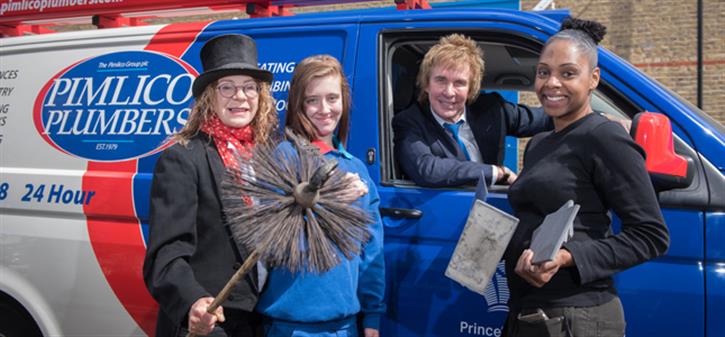

Plumbing entrepreneur and patron of the ‘Women on the Tools’ charity, Charlie Mullins, has criticised the Higher Education Policy Institute for perpetuating the UK’s chronic skills gap through its campaign to increase university applications.
The Institute has advocated a ‘Take Our Sons to University Day’ to combat the falling number of male applications to university. Applications from young women have risen four-fold between 1990 and 2000 to 133,000 while the number of young men applying has grown by just 110,000. University applications continue to rise, with 343,930 young women and 249,790 young men applying for a university place this year.
However Mr Mullins, who is the founder and managing director of Pimlico Plumbers, says that the pressure put on women to go to university, which has driven up those figures, is impacting on the number of women entering manual trade sectors.
Currently, just 11% of the 1.5 million people working in the construction-related industries are women and, worse still, only 2% are employed in manual trades.
The Women on the Tools charity hopes to dramatically increase this number to ensure women make up 50% of all those working in manual trades engaging with schools, colleges and employers to raise awareness of the range of good quality manual careers across all sectors.
Mr Mullins said: “The relentless pressure on [young women] to go to university is robbing them of productive, fulfilling and lucrative careers on the tools. Do we really have half a million jobs available every year that require a university graduate? And does anyone really think that an increase of something like 500% since 1990 is an educational crisis?
"What I do see here is an organisation called the Higher Education Policy Institute trying to justify its existence; an awful lot of graduates still flooding out of our universities with high debts and no real prospect of employment, which is all caused by the underlying fallacy that there is no good life without a degree.
"What we need in this country are more skilled manual workers to address our chronic skills gap, and if there's a balance that needs to be redressed it is the one where only 2% of tradespeople in the UK are women!”
If you'd like to keep up-to-date with the latest developments in the heating and plumbing industry, why not subscribe to our weekly newsletters? Just click the button below and you can ensure all the latest industry news and new product information lands in your inbox every week.